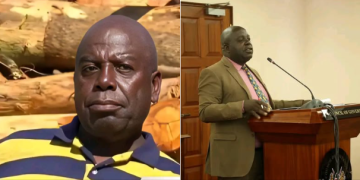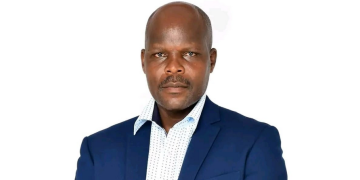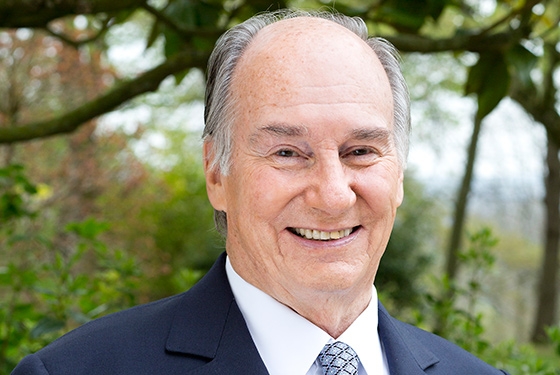The Aga Khan Development Network has announced the passing of billionaire philanthropist and spiritual leader Aga Khan at the age of 88.
Prince Karim Aga Khan, the 49th hereditary imam of the Ismaili Muslims, traced his lineage directly to the Prophet Muhammad.
According to a statement from his charity on social media, he “passed away peacefully” in Lisbon, Portugal, surrounded by his family.
Born in Switzerland, Aga Khan held British citizenship and resided in a chateau in France.
King Charles is reportedly deeply saddened by his passing, as he was a close friend of both King Charles and the late Queen Elizabeth II.
The monarch is privately in contact with the Aga Khan’s family.
His philanthropic organization oversaw numerous hospitals, educational initiatives, and cultural projects, primarily in developing nations.
Despite his charitable work, Aga Khan was known for his extravagant lifestyle, which included owning a private island in the Bahamas, a super-yacht, and a private jet.
The Aga Khan Development Network extended its “condolences to the family of His Highness and to the Ismaili community worldwide.”
“We continue to work with our partners to improve the quality of life for individuals and communities across the world, as he wished, irrespective of their religious affiliations or origins,” it added.
The Ismailis, a Muslim sect, have a worldwide population of about 15 million, including 500,000 in Pakistan. There are also large populations in India, Afghanistan and Africa.
The Aga Khan was friends with the late Queen Elizabeth II and the King is understood to be deeply saddened by his death
Prince Karim Aga Khan succeeded his grandfather as imam of the Ismaili Muslims in 1957 at the age of 20.
The prince had an estimated fortune of $1bn (£801m) in 2008, according to Forbes magazine. His inherited wealth was boosted by numerous business interests, including horse-breeding.

He became a leading owner and breeder of race horses in the UK, France and Ireland, breeding Shergar, once the most famous and most valuable racehorse in the world.
Shergar won the Derby at Epsom in 1981 by 10 lengths in the Aga Khan’s emerald green racing silks with red epaulets but was kidnapped in Ireland two years later and never found.
Despite losing his beloved horse, he told the BBC in 2011 – on the 30th anniversary of Shergar’s biggest triumph – that he did not contemplate deserting his Irish breeding operation.
Of Shergar’s triumph, he said: “It’s a memory that can never, never go away.
“I’ve seen that film I don’t know, tens or hundreds of times. I keep trying to analyse where this remarkable performance came from. Every time I see the film, I feel that I have learned something.
“If you’re in racing, the Epsom Derby is one of the greats. It always has been, so to win a race of that quality in itself is an extraordinary privilege. To win it the way he won it was more than that.
“I had watched quite enough races to be able to determine what the jockey was feeling, how the horse was going at the time and when he came around Tattenham Corner, I couldn’t believe my eyes, frankly.
“His victory up to this point in time was unique. Two things I found stunning – one was the ease with which that horse moved and second was the fact that during the finishing straight he just kept going away, going away, going away. That was really remarkable.”

The Aga Khan went on to win the big race another four times with Shahrastani (1986), Kahyasi (1988), Sinndar (2000) and Harzand (2016).
Other notable successes included the 2008 Prix de l’Arc de Triomphe with the brilliant unbeaten filly Zarkava.
The prince was also the founder of the Aga Khan Foundation charity and gave his name to bodies including a university in Karachi, and the Aga Khan Program for Islamic Architecture at Harvard University and the Massachusetts Institute of Technology.
The Aga Khan Trust for Culture was key to the restoration of the Humayun’s Tomb site in Delhi. There is an annual Aga Khan Award for Architecture.
And he founded the Nation Media Group, which has become the largest independent media organisation in east and central Africa.
Pakistan’s Prime Minister Shehbaz Sharif paid tribute to the prince describing him as a “man of vision, faith, and generosity” and a “remarkable leader”.
“Through his tireless efforts in poverty alleviation, healthcare, and gender equality, he championed the cause of the marginalized, leaving an indelible mark on countless lives,” he said.
Activist and Nobel Prize laureate Malala Yousafzai said: “His legacy will continue to live on through the incredible work he led for education, health and development around the world.”
UN Secretary-General Antonio Guterres described him as a “symbol of peace, tolerance and compassion in our troubled world”.












































